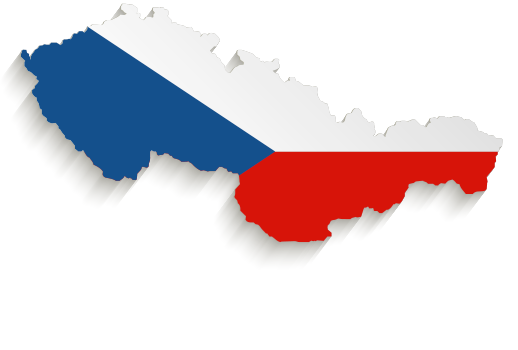(Grant Agreement n. 669194)
At the state level, the federal government played the central role in decision-making. Most of the high-ranking government officials at the federal and state levels in Czechia and Slovakia were also members of the central party bodies. Federal Prime Minister Lubomír Štrougal, a protegee of Secretary General Gustáv Husák, was responsible for promoting highly skilled industrial managers and economists into key ministerial positions. Many of these were from a younger generation which had not been politically affected by the 1968 liberalisation movement. In their newly established positions in the federal government they were able to make an effort to open the Czechoslovak economy to the West. A similar policy was executed by Prime Minister of Slovakia Peter Colotka, who successfully led an industrialisation and modernisation process in order to catch up with the Czech economic and living standards. An important role in the coordination of the organisation of economic policies and foreign trade was played by the State Planning Committee, whose president held a ministerial position in the federal government. Among the successful Czech professionals able to deal with the complex issues arising in foreign trade and international relations who rose to higher levels were Federal Prime Minister Lubomír Štrougal, Federal Minister of Finance Leopold Lér, Federal Minister of Technology and Innovation Ladislav Šupka, Federal Vice Minister of Foreign Trade Jaroslav Jakubec and Chairman of the Czechoslovak State Bank Stanislav Potáč. These men created a closed think tank which achieved a consensus on how to develop the Czechoslovak economy in the years to come, including a conservative foreign debt policy and opening towards the European Economic Community (EEC). Attached to them, a large Slovak cohort emerged at the higher political levels, mainly due to the fact that the normalisation process and sacking of elite members in Slovakia was much less harsh than in Czechia. Among the Slovaks most influential in decision-making, we should name First Secretary of the Central Committee of the Communist Party of Slovakia (CPS) Jozef Lenárt, Prime Minister of the Slovak Socialist Republic Peter Colotka, and Federal Minister of Foreign Trade Andrej Barčák. The federal and republican governments had numerous specialised ministries for individual industries. Prime Minister Štrougal identified promising young managers and either actively promoted their professional careers in state enterprises or appointed them as ministers, vice ministers or ministerial state secretaries. Slovak Prime Minister Colotka actively supported cooperation projects with West European companies in order to modernise the Slovak capital Bratislava, and also contacts with institutions like the EEC.
* This text summarises some of the research findings of PanEur1970s team member Pavel Szobi, which are published as a chapter in PanEur1970s’ academic edited book. For a link to the e-book, please see Czechoslovakia’s “Overview” webpage of this map.
|
Informace pro soudruha ministra k dopisu ministra zahraničního obchodu s. ing. Barčáka
AMZV, f. TO Belgie 1970-1974 | box 1, 1974
Information includes worries of the Party regarding individual actions of the government members and diplomatic corps towards the EEC. - Available here |
|
Oběd s. velvyslance Kouckého s poslancem PSB L. Radouxem. Záznam z rozhovoru č. 37
AMZV, f. TO Belgie 1970-1974 | box. 1, 1972
Discussion about relations between Czechoslovakia and the EEC. - Available here |
|
Zpráva k návrhu prováděcího státního plánu rozvoje národního hospodářství na rok 1983
AČNB, f. | Investice/KGMF/KSČ/Kovy drahé 1982
Report about the national economic development mentioning problems in the balance of foreign trade and foreign debts. - Available here |
|
Handakte Dieter Schmölling vom Büro des Präsidenten (Dr. Emminger) Enthält: Besuch des Präsidenten bei der tschechoslowakischen Zentralbank (Státní Banka Československá), April 1978
HA BBK, B330 | 10496/2
Information about the visit of the Czechoslovak central bank (Státní Banka Československá) on 17 April 1978. - Available here |
